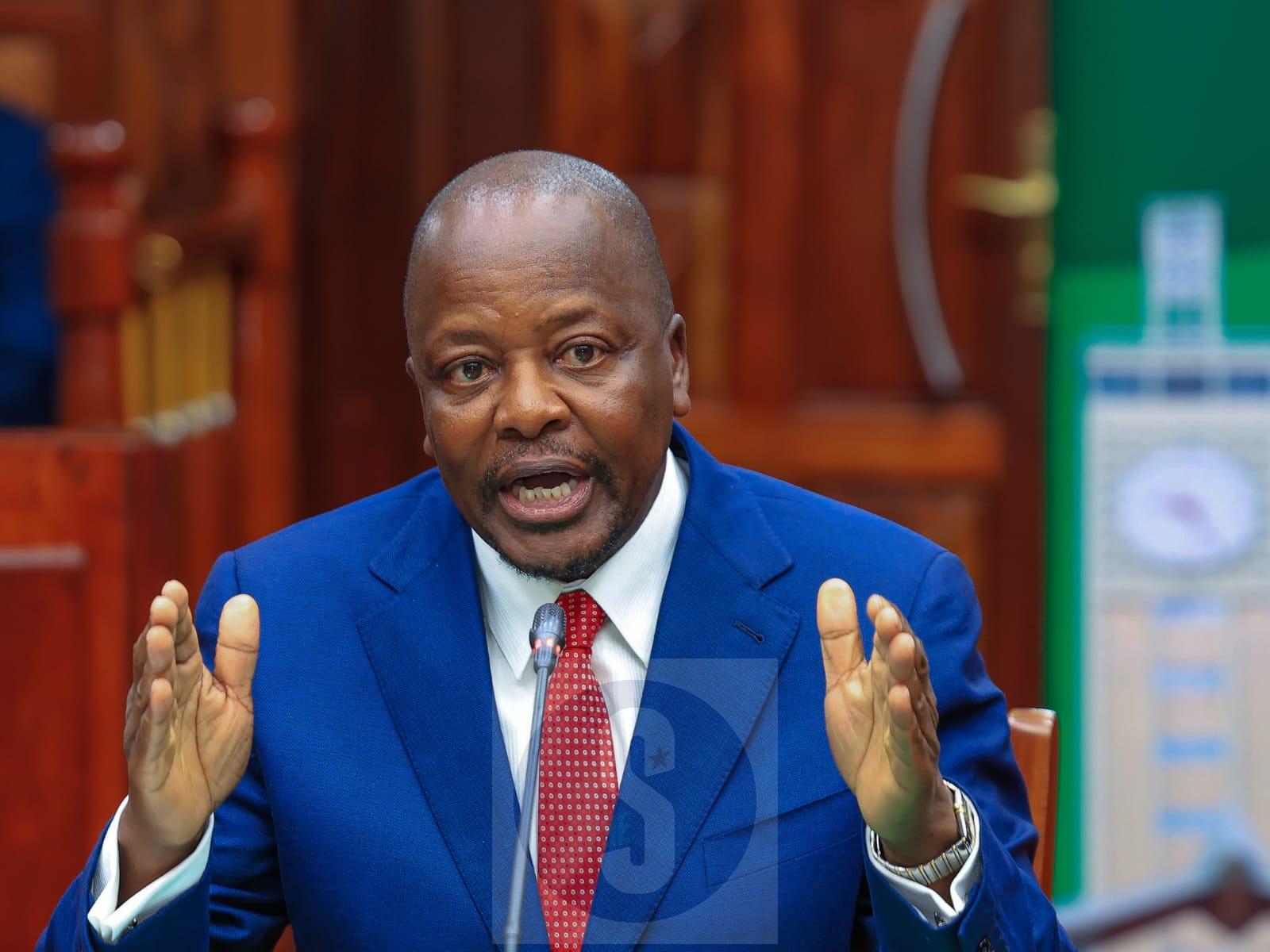 Agriculture Cabinet Secretary Mutahi Kagwe / FILE
Agriculture Cabinet Secretary Mutahi Kagwe / FILE
“This will be guided by our national fiscal consolidation targets while concurrently reflecting the sector’s importance to our economic development,” said Kagwe.
He said that while the country posted a nominal GDP of Sh16.224 trillion in 2024, only 3% of the national budget was allocated to agriculture. This is despite the sector directly contributing 22.5% to GDP and indirectly supporting another 25-30% through related industries.
He called for an increase in the allocation to at least 10%, which he said would align Kenya with the commitments of the Malabo Declaration of 2014 under the Comprehensive African Agriculture Development Programme (CAADP) and the Kampala Declaration of January 2025.
“By raising the budgetary allocation to 10%, we shall not only be adequately investing in the sector, but also meeting our continental obligations,” Kagwe said. “This would be a decisive step toward transforming our agri-food systems, increasing productivity by 45%, eliminating post-harvest losses, and tripling intra-African trade in agricultural products by 2035.”
Kagwe was speaking during the Financing Agri-food Systems Sustainably (FINAS) 2025 conference held at KICC. The conference brought together stakeholders from the government, private sector, financial institutions, farmers, and innovators to discuss strategies for transforming Africa’s food systems through sustainable financing.
The CS also stressed the need for efficiency and accountability in the use of agricultural funds.
“Even as we call for additional financing, we must demand accountability—foremost from ourselves,” he said. “We must prioritize pressing challenges, recalibrate funding mechanisms, take lessons from the past, and ensure every shilling is accounted for and delivers value for money.”
To enhance transparency and oversight, Kagwe announced the formation of an independent Projects Implementation Monitoring Unit (PIMU). The unit will monitor last-mile implementation and report monthly to ensure that resources are effectively deployed.
Kagwe also pointed out the financing gap affecting African farmers, particularly smallholders. He noted that although agriculture is central to Kenya’s economy, only 3% of the US$49 billion commercial bank loan book in 2023 was directed to the sector.
“This is a sad indictment,” he said. “The reasons are well-known, perceived risks, lack of collateral, limited access to finance, and underdeveloped rural capital markets. But it no longer needs to be the case. Financial institutions must be more creative and attuned to the complexities of farming as a business.”
Veronica Nduva, Secretary General of the East African Community (EAC), reiterated the bloc’s commitment to financing food systems to improve regional food and nutritional security.
“This commitment is reflected in various initiatives aimed at improving agricultural productivity, trade, and food systems efficiency,” she said. “The time has come to take ownership of our food systems, starting with financing. The days of relying on external funding are dwindling due to global policy shocks.”
Nduva urged stakeholders including governments, development partners, the private sector, youth, and women, to strengthen collective efforts toward sustainable agricultural financing.
Moses Vilakati, AU Commissioner for Agriculture, Rural Development, Blue Economy and Sustainable Environment, stated the urgency of transforming Africa’s food systems.
“The Kampala CAADP Declaration of January 2025 is our collective response to this urgency,” he said. “We must rethink how we finance agriculture. Traditional methods have failed. We need innovative financing models that de-risk investments, incentivize sustainability, and empower smallholder farmers, especially women and youth.”
FINAS 2025 has attracted a broad range of participants, including farmers, entrepreneurs, digital innovators, the private sector, and policymakers. The three-day event aims to address Africa’s agricultural financing gap and promote resilient, inclusive growth through innovative solutions and policy commitments.

![[PHOTOS] Ruto inspects his Naivasha farm](/_next/image?url=https%3A%2F%2Fcdn.radioafrica.digital%2Fimage%2F2025%2F06%2F72a14e8a-a040-48e1-87b3-597dbca6d7c6.jpeg&w=3840&q=100)









